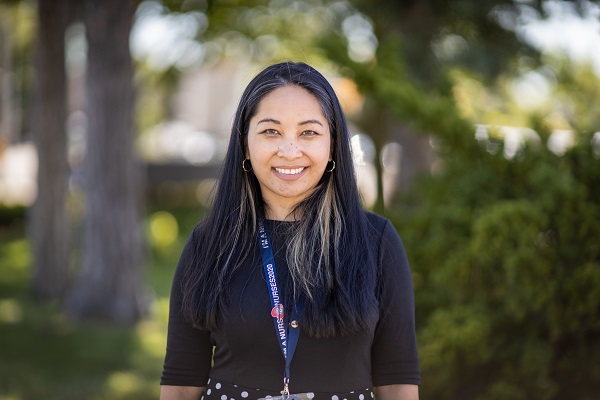In January 2021, Ontario Ministry of Health announced a new clinical extern program to provide support to organizations with health human resource challenges resulting from the pandemic. Select hospitals in Ontario, including Hamilton Health Sciences (HHS), were invited to participate.
Currently, HHS employs 200 clinical externs (from nursing, respiratory therapy, and paramedic academic programs) as part-time unregulated health care workers. The externs work in different clinical areas across HHS including medicine, surgery, pediatric, emergency, and critical care.
The program is scheduled to end March 31, 2022.
Direct benefits to HHS
Clinical externs are supernumerary unregulated health care workers who help with several care tasks such as assisting patients with activities of daily living, supporting positive patient experiences (such as supporting ambulation, positioning, feeding, and toileting) as well as supporting admission assessments and tasks.
“Assistance with these activities alleviates nurses of basic care tasks and allows them to focus on specific responsibilities that cannot be delegated,” says Charissa Cordon, Chief of Nursing Practice at HHS. “Students participating in this initiative will be learning very important clinical skills, and the program will help students transition into the professional roles much easier, making them job ready at graduation.”
The program is supported by clinical extern coordinators who are experienced regulated health care professionals who provide support and mentorship to the clinical externs and their leaders.

There are direct benefits for HHS according to Kirsten Krull, VP Quality and Performance and Chief Nursing Executive. “These future nurses are augmenting their breadth of practical experiences and building confidence in patient and family care, and concurrently gaining experiences of belonging to and learning first-hand about inter-professional team work,” she says.
Participating in this program will also enhance patient experiences by supplementing healthcare worker supports at the bedside during this time of heavier workloads.
A pathway to hiring
Over the past year, in a time of significant health care worker shortages, the clinical extern program has provided HHS with access to previously untapped clinical learners. It has provided a pathway to hiring with a centralized hiring process to support this. Externs experience more of what HHS has to offer, influencing their visions for nursing jobs upon graduation.
The majority of clinical externs working at HHS are nursing students. To date, 82 per cent of graduating nursing students working as externs have been recruited and transitioned into nursing positions at HHS.

“I have felt welcomed from the first day I started, and the nurses constantly mention how appreciative they are to get the extra helping hand,” says Jessica Loiseau, a former extern who is now working as a registered nurse at HHS.
A “wonderful opportunity”
“We thank the Ontario Ministry of Health for this wonderful opportunity for HHS to participate in this well thought out and yet flexible program that we can design to best meet our needs,” says Rebecca Fleck, Director of the Regional Rehabilitation Program at HHS. “And it wouldn’t be possible without our partners. It is a mutually beneficial program for all involved.”
HHS is pleased to work with academic and community partners – namely, McMaster University, Mohawk College and Conestoga College – to implement this program.
“Partnering with HHS in this extern initiative provides an opportunity to strengthen the future of learners in our BScN Program (McMaster-Mohawk-Conestoga). It is important for us to contribute to quality patient care,” says Joanna Pierazzo, Assistant Dean, Undergraduate Nursing Programs, McMaster University. “We look forward to our learners having an opportunity to mentor alongside other nurses.”
The clinical extern position is viewed as a developmental role, whereby students develop clinical expertise, specialty knowledge and self-confidence as they move from a student to a regulated health care professional role. Externs have unregulated care provider status and are supervised by a regulated health care professional during their time at HHS.




